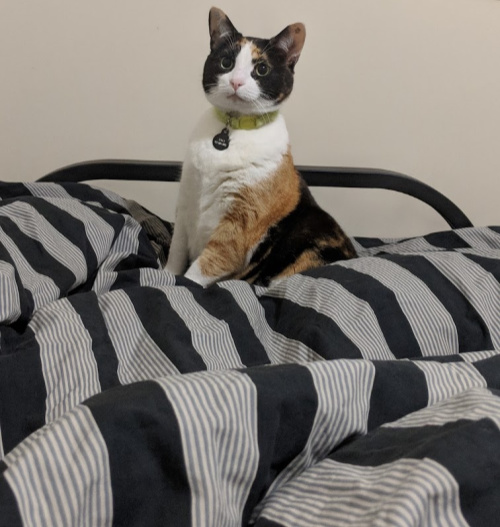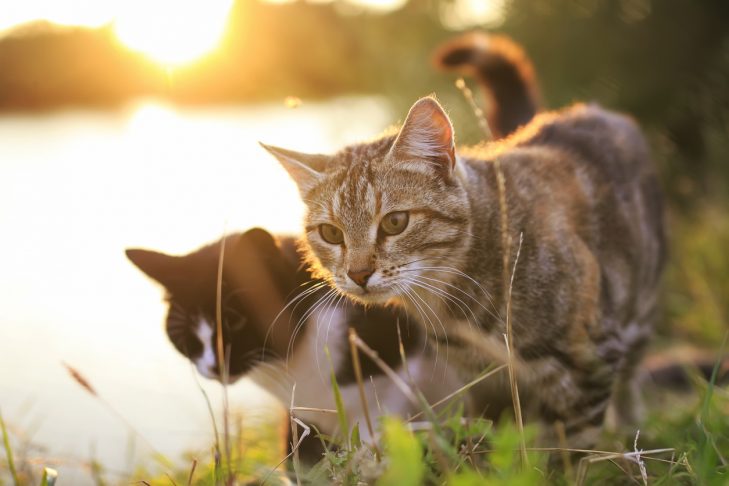In a culture where love is shown through obedience, cats get a bad rap. They’re often dismissed as cold or even heartless, ready to eat their owner as soon as acknowledge them. Of course, anyone who’s lived with cats for any period of time can debunk these myths. The issues that cat haters espouse—that they’re unpredictable, apathetic and evil—arise from the categorical fallacy of expecting a cat to act like a dog. Cats are not dogs.

These expectations and stereotypes negatively impact the way cats are perceived. What is actually a deep, complex private life is reduced to a two-dimensional caricature, an experience many Jewish people are familiar with. I’ve had cats my entire life and through extensive study of their mannerisms, I’ve deduced that cats and Jewish people have more in common than meets the eye.
1. Cats are contemplative. They interact with the world in a thoughtful, nuanced way. Instead of diving directly into a problem, cats examine their options. If you’ve ever seen a cat looking off into space with a distant, vacuous expression on their face, just know that they’re probably contemplating the thornier arguments of the Talmud.
2. Cats are adaptable. Humans didn’t domesticate cats, not in the way we’ve domesticated dogs. Cats arrived in early humans’ dwellings and we let them stay there, creating less of a master-pet dynamic and more of a roommate situation. Jewish people carve out our niche in any environment and excel even under the bleakest of circumstances. We shape our situations around our needs and create hospitable territory for our children. The intelligent cat who forgoes the wilderness to live in a warm, dry dwelling with people is much the same.
Related
4. Cats know what they want. They have goals and ambition, even if those goals include sleeping for 16 hours a day. Have you ever seen a cat stalk a fly through the house? They are relentless. It’s not a matter of if the fly goes down, but when. Similarly, Jewish people are focused in pursuing their goals, whether that means a good job or degree or self-love and personal satisfaction. All pursuits are worthy of their time and undivided attention.
5. Cats have deep roots. My own cat, Tali, has been a strictly inside-only cat for most of her life. Her hunting capabilities extend to finding treats I have hidden around the house and not much farther. She is also solidly middle-aged. But when a large mouse found its way into our apartment, she caught and incapacitated it in 15 minutes (the mouse lived and was released). Her instincts were still as solid as those of her ancestors, and many Jewish people feel the same connection to the people who came before them.
6. Cats love routine and ritual. Have you ever tried to feed a cat a half an hour after their usual time? They don’t love it. A friend’s cat meows at the door every night at 9:10 p.m. for reasons unknown to anyone but him. Jewish people, like cats, maintain a dedicated calendar and set of behaviors for certain days. Shabbat is to be held with the utmost respect and importance, and deviations are frowned upon.
7. Because I’m Jewish, and I like cats, and I said so.




